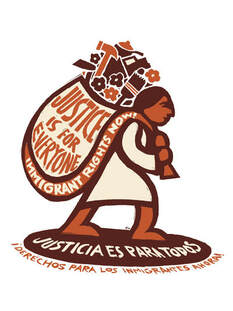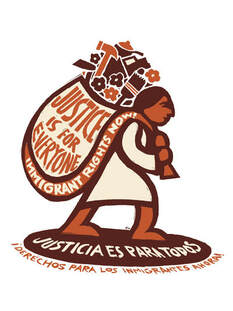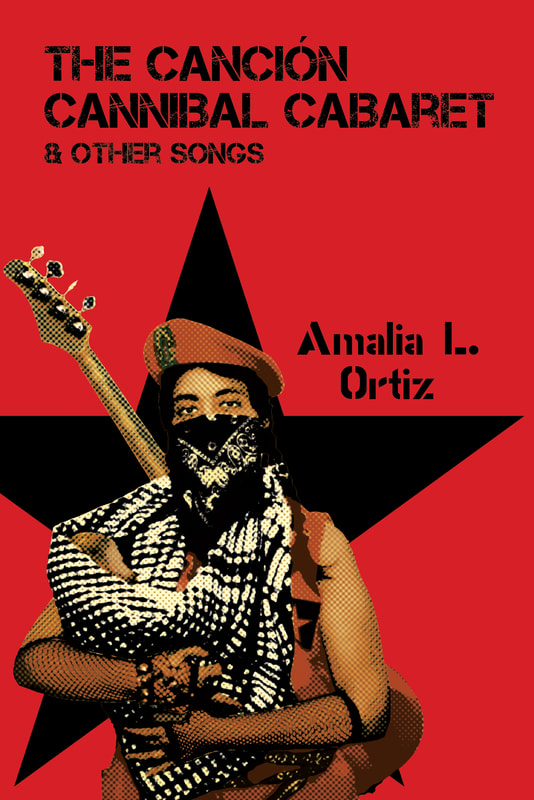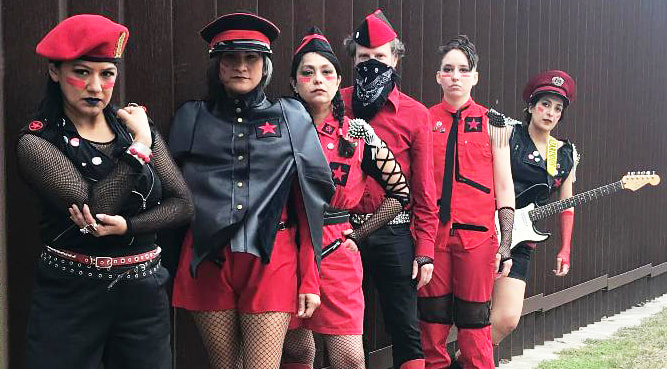|
Mexican and Central American Independence Day Celebration A NEW GRITO FOR CHANGE On September 16, 1810, Father Miguel Hidalgo delivered the Grito de Dolores, a declaration of independence from Spanish colonialism; and a call for the abolition of African slavery, for an end to the caste system exploiting Indians, and for social and economic reform. Today, Mexicans and Central Americans are forced out of their home countries by a history of U.S. military intervention and exploitation, including International Monetary Fund and World Bank debt payments, imposed austerity programs, privatization schemes and “free trade” agreements: U.S. corporate domination to create a source of cheap labor. People that migrate to the United States face ICE repression, denial of their right to organize and lack of legal enforcement of workplace protections: forcing them into low-wage jobs. Join us in a New Grito: a call for worker rights for all such as human rights, independence from poverty, full legalization and fair trade not exploitation! Performances by Diana Gameros, Francisco Herrera, Enrique Ramírez, Elizabeth Esteva and Diego Sardaneta Poetry by Rafael Jesús González and Nancy Esteva Presentations by David Frias, San Francisco Living Wage Coalition; Sara Terry Manríquez and Elvia Villescas of Las Hormigas; Karen Oliva, Committee in Solidarity with the People of El Salvador; Porfirio Quintano, Hondurans in the Diaspora; Meredith Wilkinson, Network in Solidarity with Guatemala; Diana Bohn, Nicaragua Information Center for Community Action; and David Bacon, Dignity Campaign organizing committee Wednesday, September 15 6 p.m. – 8 p.m. Register in advance for this virtual event https://bit.ly/NewGritoforChange Donations to benefit the San Francisco Living Wage Coalition, Las Hormigas of Ciudad Juarez, Trabajo Cultural Caminante and Bay Area Committee in Solidarity with the People of El Salvador For more information, contact (415) 863-1225 or [email protected] or visit www.livingwage-sf.org Celebracíón del Día de Independencia Mexicana y Centroamericana UN GRITO NUEVO PARA CAMBIO El 16 de septiembre de 1810, el Padre Miguel Hidalgo entregó el Grito de Dolores, una declaración de la independencia del colonialismo español; y una llamada para la abolición de la esclavitud africana, para un fin al sistema de la casta que explota a los indios, y para la reforma social y económica. Hoy, mexicanos y centroamericanos están forzados a salir fuera de sus patrias a causa de una larga historia de la intervención militar estadounidense, la explotación del los pagos de deuda del Fondo Monetario Internacional y Banco Mundial, los programa impuestos de la austeridad, los esquemas de la privatización y los acuerdos de "libre cambio": la dominación corporativa de EEUU para crear una fuente de obra barata. Los migrantes a los Estados Unidos, enfrentan la represión de la migra, la negación de su derecho de organizar y la falta de protecciones legales en su lugar de trabajo: forzandolos a aceptar trabajos de bajos-sueldos. Unámonos en un nuevo Grito: una llamada para los derechos del trabajador tales como los derechos humanos, la independencia de la pobreza y la completa legalización y "fair trade" sin exploitación. Música por by Diana Gameros, Francisco Herrera, Enrique Ramírez, Elizabeth Esteva and Diego Sardaneta Poesía por Rafael Jesús González and Nancy Esteva Presentaciones de David Frías, Coalición de Salario Digno de San Francisco; Sara Terry Manríquez and Elvia Villescas of Las Hormigas; Karen Oliva, Comité en Solidaridad con el Pueblo de El Salvador; Porfirio Quintano, Hondureños en la Diáspora; Meredith Wilkinson, Red en Solidaridad con Guatemala; Diana Bohn, Centro de Información de Nicaragua para la Acción Comunitaria; David Bacon, Comité organizador de la Campaña Dignidad miércoles, 15 de septiembre 6 p.m. – 8 p.m. Regístrese para este evento, virtual en línea https://bit.ly/NewGritoforChange Donaciones para beneficio de la Coalición de Salario Digno de San Francisco, Las Hormigas de Ciudad Juárez, Trabajo Cultural Caminante y Área Bahía Comité en Solidaridad con el Pueblo de El Salvador
Para más información, comuníquese al 415-863-1225 o [email protected] o visite www.livingwage-sf.org
0 Comments
Excerpts from The Canción Cannibal Cabaret, a performance work |
Archives
July 2024
Categories
All
|
Donate and Make Literature Happen
is published by the Somos En Escrito Literary Foundation,
a 501 (c) (3) non-profit, tax-exempt corporation. EIN 81-3162209





 RSS Feed
RSS Feed